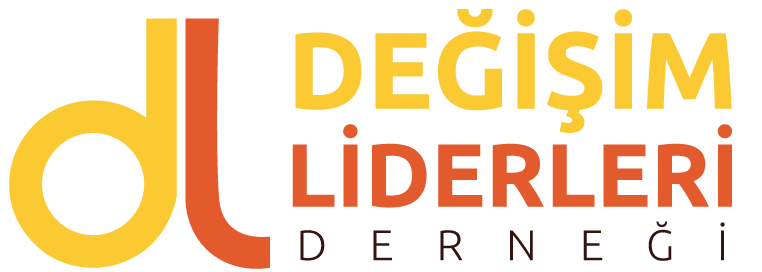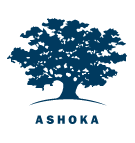(GE Hewar Blog /05 Şubat 2014)
Turkey’s Leading Women Innovators
Interview by ThienVinh Nguyen, Ashoka Changemakers
“Women currently make up half of the world’s population, work two-thirds of the world’s working hours, produce half the world’s food, but only earn 10 percent of the income and own less than two percent of the world’s property.”
– Ashoka Fellow Ben Powell, Agora Partnerships in Ashoka Forbes Blog
The disparity highlighted above between the tireless work of women and the associated lack of rewards is striking all across the world. Especially in Middle East and North Africa (MENA) countries, women still face some of the greatest barriers to asserting their economic rights.
In Turkey, just three out of every ten women participate in the formal economy, and one out of every five women is on the edge of poverty. In global terms, Turkey ranks 101st out of 109 nations in the UN Gender Empowerment measure.
The online competition Women Powering Work: Innovations for Economic Equality in MENA was launched by Ashoka Changemakers and GE to address these issues by identifying and supporting innovations that encourage and enable the full economic participation of women.
Here, two of Turkey’s leading female social innovators discuss the paradoxes and challenges they experience as they work to create economic equality for women in Turkey.
Sema Basol is founder of Turkish Women’s Initiative, co-founder of Change Leaders Association, and a Global Women’s Leadership Network (GWLN) alumnus. She is Turkish-born and currently based in Silicon Valley.
Tara Agacayak is co-founder of GlobalNiche and GWLN alumnus. She is American-born, based in Istanbul, Turkey.
Changemakers: How does Turkey rate as place for women to fulfill their dreams?
Basol: First and foremost, Turkey is a country of contrasts. On the one hand, women make up almost half of the university students and about 12 percent of the CEOs in Turkey. On the other hand, only about 25 percent of women are actually in the workforce and most are in lower-level positions.
Most women, outside of the relatively short list of those who are highly educated and sophisticated, face immense pressure and expectation to be mothers and wives. And from there it’s a cycle: you get married, you have children, and even if you’re working, childcare opportunities are limited. Plus, not having childcare options can be a factor in women having to stay home to look after their children.
Agacayak: In my observation and experience, being a Turkish woman comes with many responsibilities and unwritten rules. With numerous duties and expectations, it can be exhausting and overwhelming – I do not blame any woman who decides that she doesn’t have the energy to both work outside the home and raise children. So as far as a place for women to fulfill their dreams, I think it’s challenging when there are so many expectations placed on them. On the other hand, I find Turkish women to be skillful, hardworking, and determined – a great combination for fulfilling dreams.
Changemakers: What are the forces limiting the opportunities for women?
Basol: The number one barrier is the cultural perception of women by both men and other women: a women’s place is at home. The cultural pressures around motherhood and childcare are a byproduct of that.
You have to choose a career or a family. And most people end up choosing to stay home to be housewives and mothers, as you can see from the statistics.
It seems Turkey is becoming more conservative. In the 2011 World Values Survey conducted for Turkey on gender, 75-80 percent of people—men and women—did not feel that women should be leaders. They feel women belong at home.
Changemakers: It seems there is a paradox if women make up almost half of the university students, and about 12 percent of the CEOs in Turkey. This should be providing good role models for women who want to have a career.
Agacayak: I think there is a very good image in Turkey of women in leadership positions, but I think reaching them feels unrealistic for most women. There are women, who appear in the news or magazines, but they come from very wealthy families – most women can’t relate to these role models. They would benefit from hearing the stories of women in leadership positions who found success through a variety of different ways.
In terms of mentoring, organizations like the Turkish Women’s International Network (TurkishWIN) are making a priority to give women access to real role models. However, it seems to me that the idea of mentorship is new to Turkey.
To one young woman I knew, who had just started university, I said “You should go to TurkishWIN and get a mentor who can support you throughout your time at university and your professional career.” And she said, “Well, let me earn it first. Let me earn the right to have a mentor.”
I tried to explain how a mentor can help you make decisions and introduce you to people to build your network. I hope I helped to change her mind and see how this can help her even before she thinks she needs or has earned the right to be mentored.
Changemakers: Is religion an important factor in limiting women’s options?
Basol: There are several factors at play here, including traditions, cultural attitudes, regional politics, etc. It’s hard to separate one from the other.
Agacayak: I think the urban-rural divide, in terms of culture and access for women, plays a stronger role than religion. I think that it’s Istanbul and the rest of the country—and if you don’t live in the city, people don’t see you or acknowledge you, even if you’re doing great things.
Moreover, the percentage of women looking for jobs in Turkey has in fact been decreasing over the last two decades, because of this urban-rural divide. According to a 2011 World Bank Report on “Turkey’s Greatest Untapped Potential: Women,” as women have migrated from rural areas, where they primarily engaged in agricultural activities, to cities, they also began to stay at home and withdraw from the labor-force.
Changemakers: How do we knock down these barriers and open up opportunities for women?
Basol: Non-profits have to do their share. Government has to do its share, as do companies and universities. It requires a multi-pronged collaborative approach. There are several good initiatives out there, so it’s a matter of time. Social change takes a long time.
Agacayak: Build a supportive network model so a woman knows she is supported and can in turn support others. My advice to women is: don’t be afraid to build the network, and don’t be afraid to rely on the network.
Ask for help from people who support you and believe in you—both local and global, men and women. I don’t think there is any reason to separate those things out.

